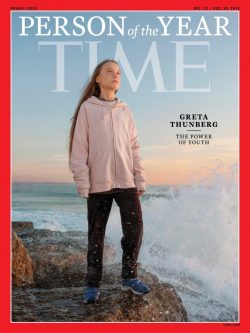Here’s the thing about Monday’s leader’s debate, Canada.
You won’t be watching it.
Well, let’s amend that. Sun readers are a scrappy, elbows-up lot, who dig politics and a good scrap. Sun readers are likelier to be watching the debate. They like debates.
But most everyone else? They won’t be.
Everyone else will be watching Shark Tank (which this election kind of is) or Wheel of Fortune (which this election isn’t). Or, they’ll be binge-watching old episodes of Arrested Development (which neatly describes most of our federal political leaders).
Increasingly, voters simply don’t watch leader’s debates in Canada. For example, Maclean’s magazine put together a debate in 2015, but it had fewer than 40% of the viewers who took in the 2011 English-language debate. And Maclean’s actually counted people who only watched part of that debate, not all of it.
Master Chef got way more viewers.
Last time around, there was a Globe and Mail debate, too, and it was absolutely awful to watch. YouTube later found only about 400,000 Canadians did so. That’s in a country, in 2015, with 36 million people in it. Ipsos later did a poll and found only about 20% of Canadians watched the first couple debates in 2015.
There’s been one debate in 2019 that Justin Trudeau has deigned to attend. It was entirely in French.
Around 1.2 million Quebecers allegedly took in the TVA leader’s debate, in which Andrew Scheer, Jagmeet Singh and the separatist leader, Yves-Francois Blanchet, also participated. In a province with more than six million eligible voters, 1.2 million viewers isn’t anything to brag about, although TVA did.
Oh, and in English Canada — in English — nobody got to watch the French debate when it was happening. Because it was entirely in French. To get a sense of what happened, the vast majority of Canadians needed to check out the media after the fact (Widely-held consensus: the separatist guy won, hands down).
As someone who owns a public opinion firm — Daisy Data, at your service! — I can relate one empirical statistical fact: a dwindling number of voters watch debates from gavel to gavel. They may in take part of a debate, sure. But not all of it.
What voters do, instead, is watch the news media’s coverage of a debate. They’ll see a clip of a fiery exchange on TV, or they’ll hear a so-called defining moment on the radio heading into work, or they’ll read expert commentary in the pages of the Sun and hopefully nowhere else.
But they don’t watch all of the debate.
I’ve prepared prime ministers and premiers for debates, and I now know I did it all wrong. I assumed, as did my debate-prep colleagues, that everyone else watched the debates as closely as we did. That was a flawed assumption.
It also explains how Justin Trudeau was seen as a winner in the 2015 debates, even against two superior debaters — Stephen Harper and Thomas Mulcair. Trudeau’s strategy in 2015 was a lot like what he did in his celebrated boxing match with Patrick Brazeau: he waited in his corner for an opening, then he’d go in with a flurry of punches.
He didn’t try to dominate all of the matches — he just did what he needed to do to get clipped on TV, then he’d sprinkle the results all over social media.
It worked, because he knew that Canadians were more likely to see clips of a debate than all of a debate.
That’s what he’s going to do on Monday night, too. In an era of shrinking debate audiences, it works. Will the other leaders let him get away with it in 2019 like they did in 2015? Tune in and see.
Or, join everyone else, and go watch Shark Tank.
— Sun columnist Warren Kinsella will be providing debate commentary on Bell Media radio on Monday night
Comments (25)


